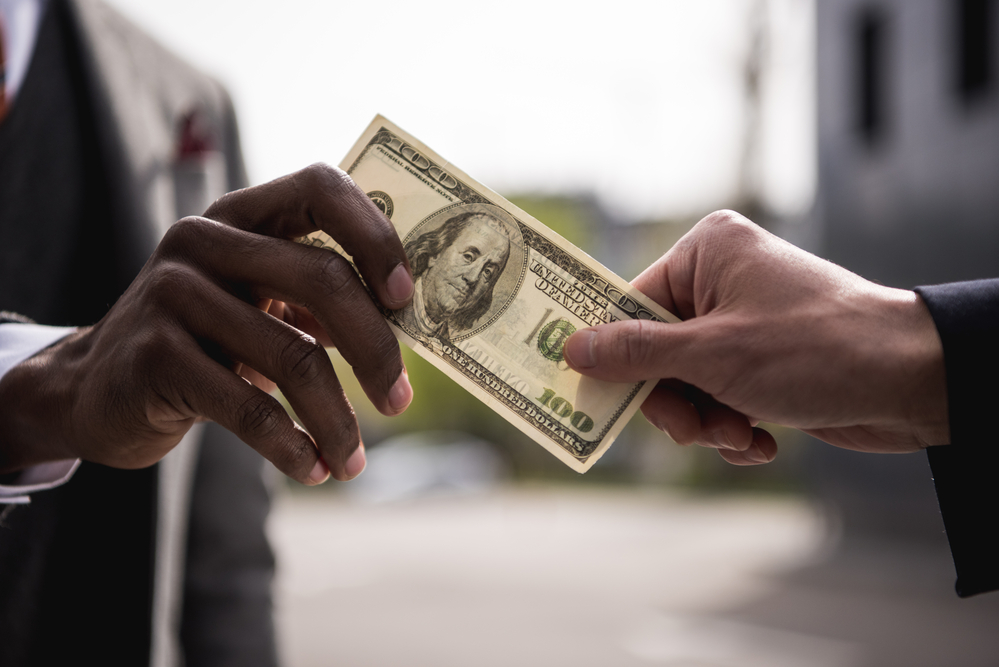Can Aristotle tell us anything about short selling GameStop stock? I think so! But to understand what, we need to turn to one of the strangest parts of ancient and medieval ethics: the prohibition on loaning money at interest.
Part 1: An Old Argument Against Usury
Dante Alighieri, in Canto XI of his Inferno, places usurers in the 3rd ring of the 7th circle of hell. Those who lend money at interest, then, are placed lower in hell than the greedy, the gluttonous, and the lustful. In fact, they are placed in the same circle as (and a lower ring than) murderers!
Nor was Dante unusual in his condemnation of usury. Plato and Aristotle each condemned loaning money at interest, as did the Catholic Church for most of its history. Indeed, usury is still widely condemned by Islamic thinkers in light of passages in the Qur’an. There was reasonable, if not complete, uniformity amongst ancient and medieval ethicists in the condemnation of loaning money at interest.
I want to look at this old prohibition against usury, not because I think it applies today, but because I think part of the underlying principle might have new applications in the modern economy.
There tend to be two elements to the old arguments against usury. First, there is a confusing worry that there is something iffy about profiting off money as such. Second, there is a worry that usury contributes to inequality. Thus, Thomas Aquinas, in his discussion of usury, starts his objection by saying that to “take usury for money lent is unjust in itself, because this is to sell what does not exist, and this evidently leads to inequality which is contrary to justice.” Some philosophers emphasize one of these two points more than others (thus Plato seems to focus on inequality while Aristotle focuses on the unnaturalness of profiting off the medium of exchange); but I think to really understand the ancient worry we need to put them together.
Part 2: An Old Argument in New Terms
Economic activity should be contributive, not extractive. That is, we should profit by taking a proper subset of our contribution to the common good, not by simply shifting money from someone else to myself.
If I’m a farmer, I make money by growing crops that contribute to the wellbeing of others. I then sell those crops at a profit. My profit is a subset of the total good that I produce. If I’m a painter, I make money by improving the appearance of the buildings we live in. If I’m an academic, I make money by increasing the store of human knowledge or by educating others. In any of these jobs, even were I not to get paid, the world is a better place for my efforts. And because the world is a better place for my efforts, it is good that I be remunerated for what I produce.
In contrast, if I make a profit not by taking some share of the extra good I produce, but just by extracting goods from others and accruing them to myself, then that is not a legitimate way to make money. Such behavior is what is sometimes called ‘rent-seeking.’ The problem with extractive activities is that your good always comes at someone else’s expense. You are benefited only to the extent that others are hurt. (Note not any redistribution is rent seeking, mere redistribution from the rich to the poor actually can produce increased value since a dollar is worth more to a poor person than a rich person given the principle of diminished marginal utility.)
Now, it is, of course, possible to make the world a better place by the furnishing of money. Thus, suppose you come to me with a business idea but need an investment to start the business. I think it is a good idea, so I give you $10,000 in exchange for part ownership of the business. You put in the work, I put in the capital. Now, if this business thrives, say by selling pasta, then the world will be better off (people have access to pasta) and we will both make some profit.
But that is not what happens when I loan money at interest. Elizabeth Anscombe points out this distinction in her article “Two Philosophers’ Objections to Usury” where she discusses the “distinction between investing in a capital venture, with a view to sharing the profits if it should succeed, and demanding interest on the mere strength of a loan.” If I invest in your company, my profit scales with the amount of pasta you sell (namely the amount of good that you do). But if instead I simply loan you money at interest, then you owe me the same return whether the business succeeds or not. That is, I make a claim to the money whether or not you successfully contribute to the common good.
This, then, is the worry about profiting off money as such. It is not that you cannot use your current money to make more money (of course you can, by investing), the problem comes when the investment just is the money, because then your profiting is shorn off from any contribution to the common good.
Now, how is this connected with equality? Well, if profiting off just having money is a form of rent-seeking behavior, it is a particularly pernicious form because it is a rent-seeking behavior which siphons money from the poor to the rich. If the rich invest money with a poor person, the rich person will profit only if the poor person profits as well. But if instead the poor person takes out a loan with the rich, then the rich person profits regardless of the good that accrues to the poor person.
Part 3: An Argument in New Form
I don’t think this argument against usury still applies today. It does not, as far as I can tell, quite make sense. In particular, I think it fails to take seriously how the continual expansion of the economy means that it actually does create real value by having capital now rather than later. However, I do think there is a way to apply some of this reasoning to a lot of what goes on in various forms of speculative investing. Consider three different investments (I’m not an expert on this subject, so take my descriptions with a grain of salt).
Currency Speculation. Suppose that I think that in the future the value of the dollar will increase relative to the euro. Thus, I trade some of my euros with you in exchange for dollars as a form of investment. If the value of the dollar, then, goes up relative to the euro, I can pocket a nice little profit. But note, that if my dollars go up in relative value, your euros must have gone down. If we trade dollars for euros as an investment, then one of us can make money only if the other person loses it.
Shorting Stocks. I think a company is currently valued too highly. Because of that, I borrow a stock that you own, sell it to someone else, and then when the price of the stock falls buy a new cheaper stock to pay you back with. I make some money, you still have your original stock (plus whatever fee I paid to borrow it), but we did not actually create any value for the common good. So where did the value come from? It came because the person who bought the short stock lost money. Any dollar that I make by shorting a stock, someone else must have lost by buying that stock.
Bitcoin. Suppose I expect the value of bitcoin to increase in the future, while you are worried it will decrease. Thus, I buy some of your bitcoin, the price increases and I pocket a profit. Now, I was able to profit here, but only because you lost on the trade. Bitcoin, does not itself, contribute to the common good. Thus those who profit off bitcoin, it seems to me, might be profiting off money in precisely the way Aristotle was critical of.
These forms of financial speculation, then, really are in a deep sense like gambling. People often describe them as gambling in the sense that they are risky, but they are like gambling in another sense, that the money you make does not come from the creation of new wealth, but rather from extracting wealth from a loser. You win only to the extent that someone else loses; and that is no way to make a living.
Now, I don’t actually think all gambling is morally troubling. When my friends and I play bridge, I often like playing for a ‘penny a point.’ But we play for money, not because we actually want to make money, but because the game is more fun and the strategy more balanced when some money is on the line. If I win one night, and my friend wins the next, the actual financial exchange might cancel out, but we are all the richer at least in having played better games. I don’t think there is any problem with gambling, in this sense; rather I think gambling is wrong when one’s final end really is to take the money of someone else.
Now, economists do tell me that my examples are oversimplified and that there actually is real value created by these financial maneuvers, perhaps in a way that parallels my bridge example. The person who buys my euros might not be saving them, they might be planning to use them for something that contributes to the common good (though, again, I will make my money whether they do so or not). Likewise, economists tell me that short selling stocks plays an important role in preventing the development of financial bubbles.
And maybe that is right. But it is at least worth noting, that even if some value is created by these practices, the profit one pockets is not a percentage of that value. I profit because someone else loses money; were no one else to lose money my profit would be far less. I expect that most who engage in such financial speculation would not do so, unless they thought they were net pocketing the money of others (in a way I would play bridge for money, even if I expect everything to equal out in the end).
Conclusion
There is something morally troubling about ‘making money off money.’ That worry may no longer apply to all forms of usury (though it surely does still apply to exploitative loans like those provided by many payday lenders), but I think it may apply to new financial transactions that Plato and Aristotle had never conceived of.
Of course, I doubt many of my readers are hedge fund managers. So does this advice apply to you?
I’m not sure, but I think it might. Just as the hedge fund managers did something wrong, potentially so too did those redditors squeezing the short. That succeeded (to the extent it did), not because investment in GameStop contributed to the common good, but because others lost money.
Now I’ll be the first to admit I don’t feel much sympathy for hedge fund managers who lost money; and I already mentioned the possible positive good created by redistribution. But all the same, it doesn’t quite feel right. If these hedge fund managers really have rights to that money, then I’m not sure I should profit even at their expense. And if they don’t have rights to the money, I’d rather the redistribution come by taxation rather than playing a game they might still win.
My practical advice is this: Whenever you see yourself making a profit, ask yourself where the total value is being produced in the common good, and make sure, as a first step, that you are not profiting more than the value you create.




